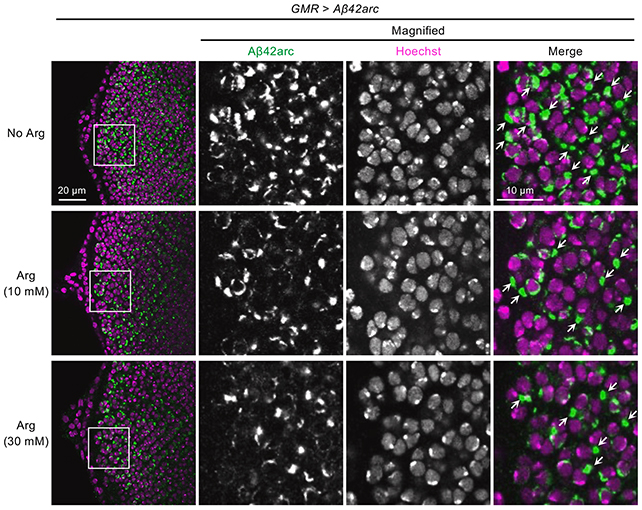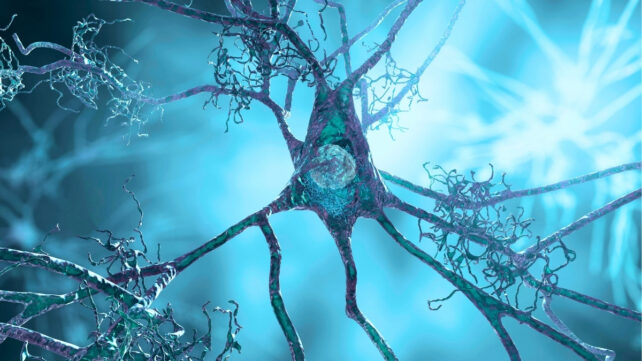A build-up of sticky proteins in the brain is a key hallmark of Alzheimer's, thought to be closely linked to the disease's progression. Now scientists have found a new way to clear these harmful clumps in the brains of mice and the eyes of fruit flies.
This potentially promising Alzheimer's treatment involves an oral dose of arginine, an amino acid already used as a medication for conditions including chest pain and high blood pressure.
The discovery was made by a team from Kindai University and Japan's National Institute of Neuroscience, who focused on the amyloid-beta plaques seen in Alzheimer's disease.
If the same results can be achieved in human brains, we may have another avenue for potentially tackling a key molecular symptom of Alzheimer's – in a safe and easily applied way.
Related: We May Now Know Why Alzheimer's Erases Memories of Our Loved Ones
"Our study demonstrates that arginine can suppress amyloid-beta aggregation both in vitro and in vivo," says neuroscientist Yoshitaka Nagai, from Kindai University.
"What makes this finding exciting is that arginine is already known to be clinically safe and inexpensive, making it a highly promising candidate for repositioning as a therapeutic option for Alzheimer's disease."

The researchers bred male mice with Alzheimer's-like aggregations of amyloid-beta, then added arginine to the animals' drinking water.
Arginine significantly reduced the protein build-up in the animals' brains and alleviated some of the related toxic effects.
Mice given arginine also showed reduced behavioral abnormalities during tests and had less active neuroinflammatory genes.
So the treatment may not be just scrubbing away the protein plaques; it could be reversing some of the harm being done to the brain, too.
Further experiments in fruit flies and test tubes added to the evidence that arginine could possibly clear out amyloid-beta clumps and stop them from forming in the first place.
Scientists already knew that arginine can act as a kind of chemical chaperone, preventing the abnormal misfolding and clumping of proteins, like those seen in Alzheimer's disease. Animal studies also show arginine can cross the blood-brain barrier, which is key for treating brain diseases.
"Given its excellent safety profile and low cost, arginine could be rapidly translated to clinical trials for Alzheimer's and potentially other related disorders," says Nagai.
Related: Scientists Discover Speech Trait That Foreshadows Cognitive Decline
Before we get ahead of ourselves here, it's important to note that the researchers used a relatively high dose of arginine in their animal tests, and more work needs to be done to figure out a safe treatment dose for humans.
And while mouse and fruit fly models are often good substitutes for human diseases, there's no guarantee that these findings are going to carry over. The animal testing has produced encouraging results, and clinical trials can now be considered.
Finally, there remains some uncertainty that clearing away amyloid-beta plaques can actually work as a way of treating Alzheimer's. These clumps are definitely harmful to neurons, but it's still unclear whether they're helping to drive Alzheimer's to begin with, or signs of other mechanisms at work.
Even with those caveats though, it's another encouraging step forward in our understanding of how Alzheimer's works and how we might be able to tackle it – another promising treatment option to add to an ever-growing list.
"Our findings open up new possibilities for developing arginine-based strategies for neurodegenerative diseases caused by protein misfolding and aggregation," says Nagai.
The research has been published in Neurochemistry International.

